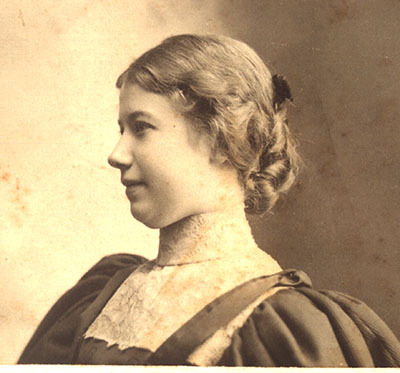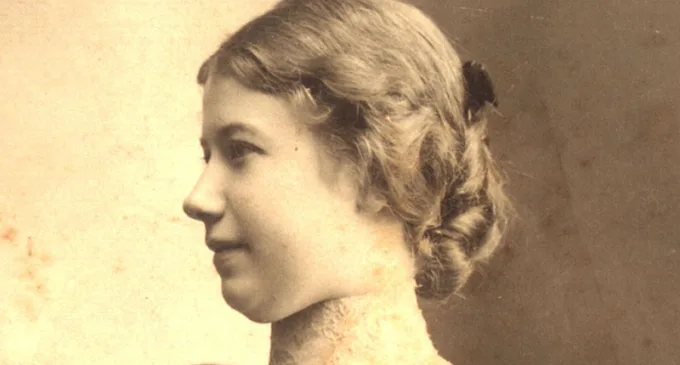Mary Ritter Beard, Alpha/DePauw, a noted historian and an advocate for the field of women’s history, once said, “Without knowledge of women in history as actual history, dead women are sheer ghosts to living women—and to men.”

Working with women’s history can be a challenge whether it is researching a female family member or notable woman in your field, campus, or community. But it is a challenge worth the effort and time needed to uncover women’s contributions and stories.
When researching Thetas for inclusion on the Theta notables listing on the website and completing background research on specific individuals, below are some interesting things I have learned over time.
- Women’s names: Due to the cultural tradition of women changing their name upon marriage and past editorial practices of referring to married women only by their husbands’ names (i.e., Mrs. John Smith), tracking them can be difficult. Theta’s editorial practice in the Theta Magazine, since its first issue in 1885 and for most of the history of the Theta Magazine, is to include their name at initiation along with their married name—and I am grateful! It can still be challenging to find a member if a she remarried, but searching newspapers and utilizing census materials can assist in tracking these women.
- Professional activities: Again, the content from Theta Magazine becomes extremely helpful. First, as we do today, the pages of Theta Magazine have featured specific articles about notable members throughout its publication run. Chapter letters have also been incredibly useful. Between 1885 and the 1930s, chapter letters were required to be submitted by each chapter. They not only offered glimpses of the chapter’s own activities, but also included short references to what their members and alumnae were doing, whether it was a position held or training they received. These clues, combined with the in-depth searching one can do via Google, Google Books, the Internet Archive, and other online sources, can help identify and inform who these women were and what they did. With the proliferation of digitized content such as newspapers, yearbooks, professional publications, and other items, finding information about these women has become easier.
- Suggestions by you and others: I often find out about notable Thetas from fellow members or others. We rely on YOU to let us know about both those from the past and contemporary Thetas who are making a mark in their fields of endeavor! For example, with the upcoming Summer Olympics in late July 2024, we would love to hear about any Thetas who are participating!
Doing research on women can often be like a jigsaw puzzle, finding individual pieces in a variety of places before being able to tell the whole story. I have a picture of Mary Ritter Beard above my desk with her quote to remind me of the importance of bringing these stories to life. These women have contributed much to their communities and careers, and Women’s History Month reminds of the importance of finding and sharing their stories.


